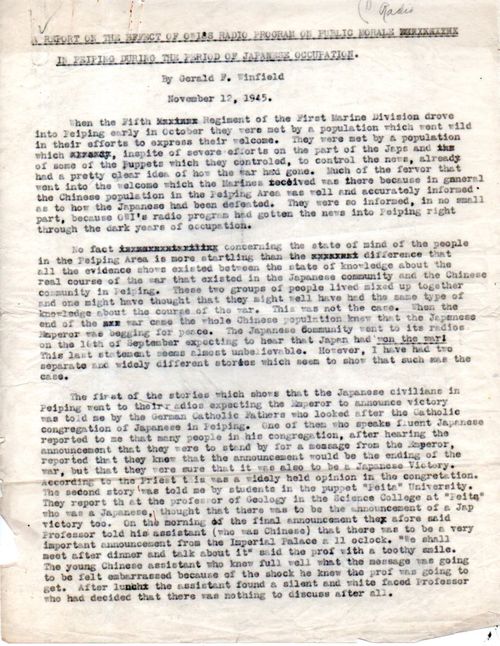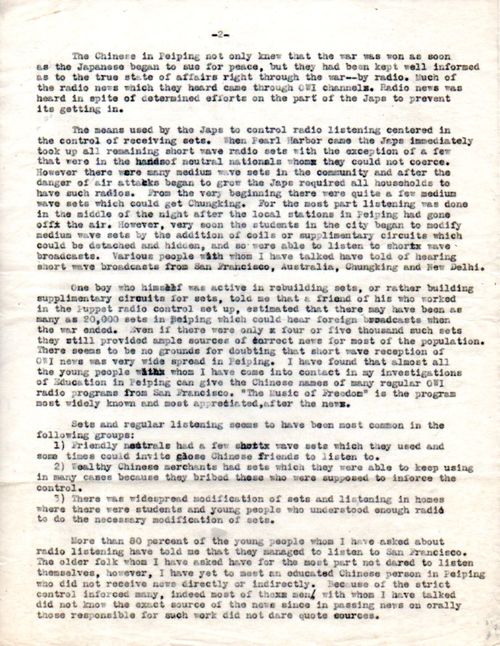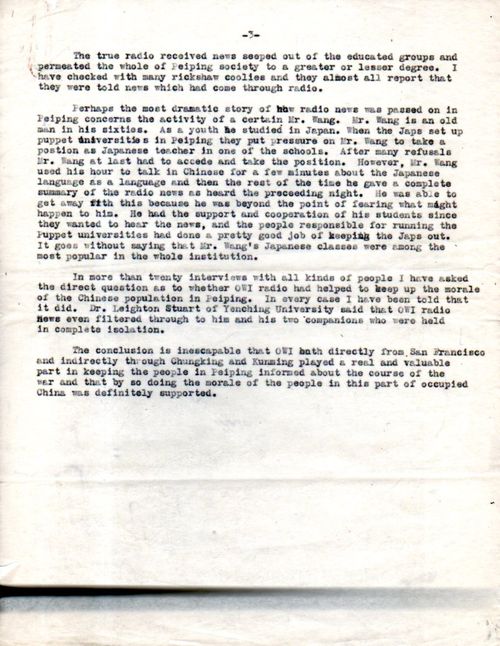JF Ptak Science Books
I stumbled upon this very interesting bit of information in the hoard of materials I purchased of the Library of Congress years ago. "Report on the Effect of OWI'S Radio Program on Public Moral in Peiping During the Period of Japanese Occupation", by written by George F. Winfield (November 12, 1945) might sound fairly high and dry, but it brings out a very interesting series of points, one of which was that the Chinese of Peking were far more informed on the progress of the war than their Japanese occupiers.
- "Report on the Effect of OWI'S Radio Program on Public Moral in Peiping During the Period of Japanese Occupation", written by George F. Winfield (November 12, 1945) . 3 carbon typed sheets, 1945. Very good copy. SOLD
Japan began this second war (following the first Sino-Japanese War of 1894/5) in July 1937 (more than two years before the beginning of the European war in September 1939). It followed decades of "incidents" between the two countries, revolving into pre-war (if there is such a thing) in the early 1930's before the beginning of full out-and-out war in 1937. The War of Resistance Against Japan (for the Chinese) and the Great Holy War and the Great War of East Asia (to the Japanese) was an enormous conflict, claiming three million KIA and WIA on teh Chinese sjide and about half that for the Japanese...plus between 15 and 25 million Chinese civilian deaths and untold numbers of wounded. I don't know if there is a figure for displaced people, children left parentless, and war rape.
There were nine years of brutal occupation by the Japanese, during which time the Chinese received some minimal if not risky help from the Allies. It is interesting to see in this report that the occupied Chinese were expecting the announcement of surrender because they had been kept informed via the Office of War Information (OWI) radio broadcasts that were received without interference from the Japanese ("the OWI's radio program had gotten the news into Peiping right through the dark years of occupation"). Winfield writes that even though the two groups lived within each other's spheres, they did not share the same information from radio broadcasts. According to this report, when it was announced that there would be an announcement from the Emperor that the Japanese in Beijing thought it would be the announcement of the end of the war--but with a Japanese victory. After years of propaganda from their own government, the Japanese in Beijing were in general totally surprised by the announcement of surrender, the occupiers occupied by the lies of their own government.






Comments